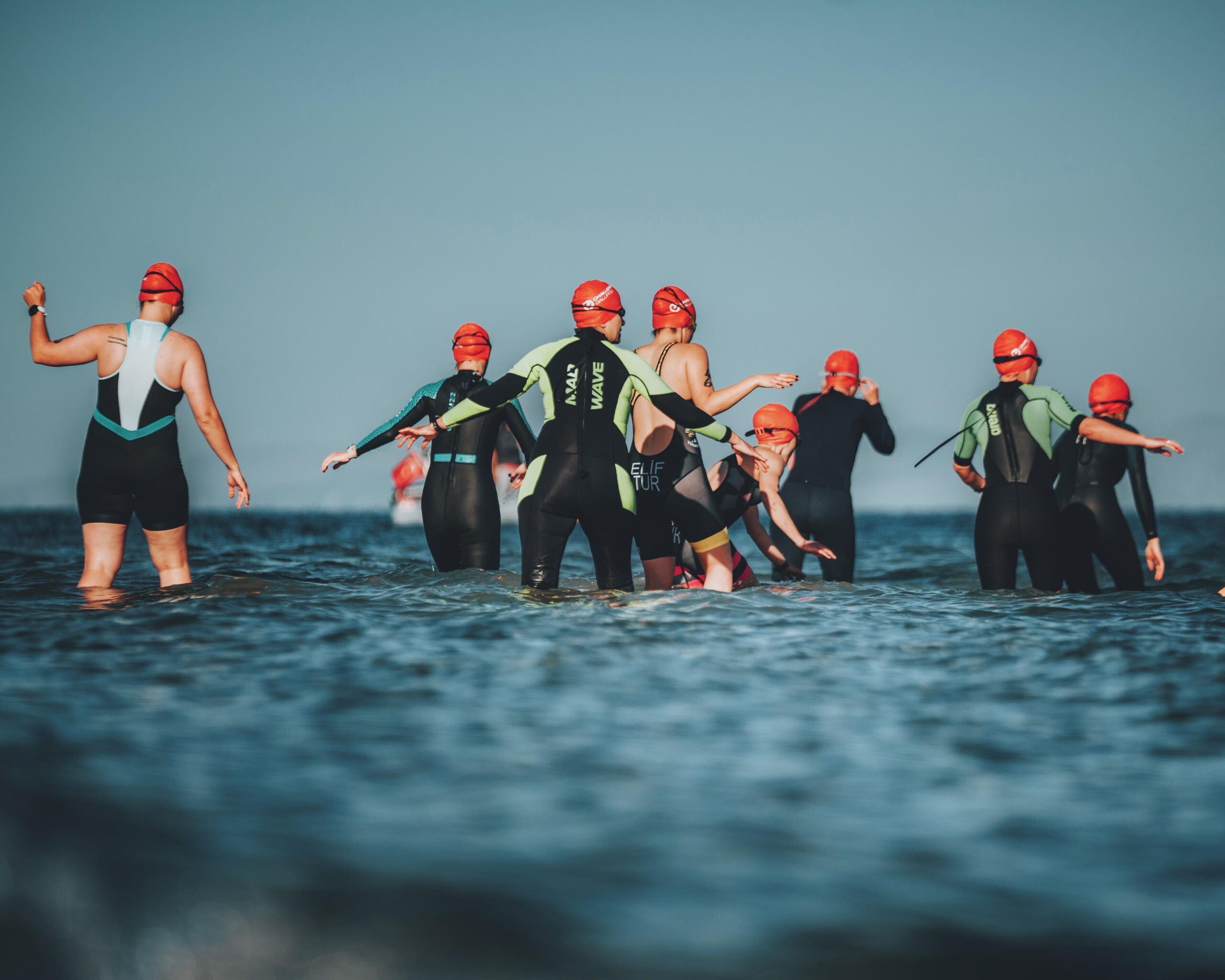New perk! Get after it with local recommendations just for you. Discover nearby events, routes out your door, and hidden gems when you sign up for the Local Running Drop.
In the quest for improved performance over the years, triathletes have tried a lot of things – some of them good, some of them bad, and some of them outright boneheaded. While many of the latter have rightfully been relegated to the back of our memories along with things like men’s race-day briefs, some seem to live beyond their usefulness. Chief among these is the idea of “race weight” – the body weight at which you’ll magically be able to perform at your best, be healthier, and stay sexy, all while not feeling hungry, tired, cranky, or burning out.
If you’re wondering why this idea sounds ridiculous yet oddly seductive, you’ve just proven why you need to keep reading. So, come along with me, because it’s time to debunk the Race Weight Myth.
What is race weight?
Predicated on the concepts of mass and velocity, race weight is supposed to be the perfect spot where your body will be at its optimal power-to-weight ratio. For most of us, this is not our current body weight, and therefore, in theory, weight loss will be necessary.
If this sounds like a dusty old strategy, that’s because it is. Continually presented as the cure-all for what ails you, weight-loss diets are the cockroach of the wellness universe and are ever-shifting in theme and changing in language to suit modern sensibilities. Around the triathlon community, they are often billed as “performance enhancing” and “optimizing,” designed to appeal to a wider range of athletes who wouldn’t normally see themselves hitting the fat-free cottage cheese section of the local grocery.
The language has shifted as well, often touting “motivation” and “discipline” as primary factors in successful weight loss. Make no mistake, though: This is about restricting calories and all of the pitfalls and pains that come along with it.
So, let’s rip through the top myths about race weight just begging to be taken down, the consequences, and the red flags that you should pay attention to along the way.
Race weight myths in triathlon
Myth #1: Race weight is meant to be maintained.
Despite the fact that it’s right there in the name, we are often confused about the idea that weight loss is meant to be a performance tool that is deployed in the short term, and certainly not maintained. The traditional use of race-weight diets was to get down to a particular weight right before a competition, then slide back up to a normal weight or risk injury.
So why did this change? One reason is that we become attached to the aesthetic side effects, and don’t believe the data that tells us that athletes who attempt to hold themselves at an unnaturally low body weight have a higher risk of injury. The truth is that, despite what the slick photos of athletes in their skivvies may tell us, sometimes there is a difference between performing better and looking better. Fastest times don’t necessarily come in the leanest body. The sooner we accept that, the better athletes we will be.
Red flag: “Nutritionists” (usually with questionable credentials) trying to sell books or consultations to help you lose weight “for performance.”
The fallout: You’re exhausted, hungry, and your training output has plateaued or declined. Poor body image has you restricting calories and/or overtraining, setting you up for even more trouble. You start feeling like a failure because you “weren’t strong enough” to maintain the weight loss. In short, your “good” diet is ruining your life.
Fastest times don't necessarily come in the leanest body.
Myth #2: Race weight is your healthiest weight.
Let’s say this again for the people in the back: Losing weight is not always synonymous with getting healthier. Sure, for some, dropping a few pounds can have a positive effect on cholesterol, blood pressure, and many other factors. But as an endurance athlete, it can also make you vulnerable to entering into a state of Low Energy Availability (LEA). LEA is what happens when the amount of energy you burn is so much higher than the amount that you take in that it causes dysfunction across multiple body systems, creating hormonal disruption, mood changes, injury, and even chaos within your immune system. Health is a complex concept and weight loss is not always a part of achieving it.
Red flag: Fitness influencers using words like “healthy” interchangeably with “lighter.”
The fallout: You’re getting more colds, you can’t get an erection, your period is irregular or nonexistent, you’re feeling depressed, and you’re exhausted.

Myth #3: Race weight will always enhance performance.
If all it took to improve race times was dropping weight, triathletes would just lean into the lettuce in the weeks before a competition and get prepared for the podium. There’s more to it than that. Losing weight too quickly or without a correct balance of macronutrient intake can mean that any improvements may be fleeting (see Myth #1) before the negative effects of caloric deprivation kick in.
Weight loss for endurance athletes is a delicate science; one that should be undertaken with the guidance of a registered dietitian with experience in helping athletes dial in a body composition that is optimal for their age, genetics, gender, and even ethnic background, which can all be important factors.
Red flag: Consulting a “race weight calculator” as part of a training plan.
The fallout: You’re more sluggish than before you started the diet and feeling burned out before a race.
There’s no substitute for solid training techniques and making sure you’re putting in the work on the bike, road, and in the pool before you start to think about what a smaller pant size might do for your PRs.
